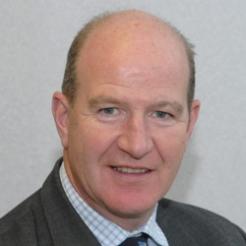Nearly three-quarters of Fundraising Standards Board members have told the regulator they want tougher sanctions against charities found to be in breach of the codes of practice.
In a survey of its membership leading up to its submission to the Charities Act 2006 review, the FRSB found significant support for the expansion of self-regulation and the powers of self-regulatory bodies. Lord Hogdson, leading the review, has specifically called for evidence on the effectiveness of self-regulation in fundraising.
Alongside the 74 per cent of respondents which favoured tougher sanctions, a similar figure (75 per cent) also said that all charities which fundraise should be members of the FRSB.
Alistair McLean, chief executive of the FRSB (pictured), indicated that this information will be fed into the Charities Act review, led by Lord Hogson.
“The large majority of our members think that all fundraising charities should be members and this must be a consideration within our forthcoming submission to Lord Hodgson’s review,” said McLean.
“Public trust and confidence in charity fundraising is paramount and can only be achieved through the display of consistently high standards across the sector and a shared commitment to transparency and accountability.”
Impact of fundraising self-regulation
The members – of which 25 per cent replied to the FRSB’s survey – also appeared to approve of the regime of self-regulation as a concept and practice.
While 71 per cent felt that self-regulation has had a positive impact on trust and confidence in charities, nine out of ten want the FRSB to do more to promote the concept to the public. More charities - 84 per cent of members – think self-regulation has had a positive impact on fundraising and nine out of ten think the current system is effective.
Charity members were less emphatic about the impact the FRSB has had on their own practice, however. Less than two-thirds said that membership to the FRSB has resulted in an improvement in the way they follow best practice guidelines and just over half (52 per cent) said they had improved their complaints handling procedures as a consequence.
Gill Raikes, director of fundraising at the National Trust, said that her charity underwent a review of its complaints procedures after signing up to the FRSB.
"We are even more aware now of the damage that can be done if customers and donors alike are not treated with the ultimate care and respect," she said.








